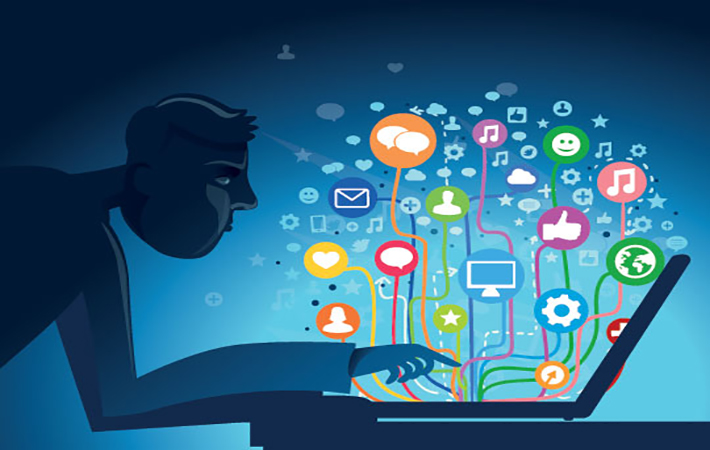It certainly cannot be denied that in recent years technology has been spreading to an ever greater extent and each of us, like it or not, must somehow deal with this new reality. Not only young people, but perhaps even more so workers who have to learn to use new computer programs, partly to perform operations that were previously carried out “on paper” and partly to take advantage of some completely innovative features, of which in the past they did not it was possible to use.
But the most important aspect we have to deal with is that of communication and, in particular of social networks, which, nowadays, are increasingly accessible because it is no longer necessary to have a computer, but a simple smartphone is enough. and we can immediately access Whatsapp, Facebook, Twitter, just to name a few of the most famous. Another aspect to consider is the ease of registration, which often takes no more than a couple of minutes while sometimes it is even automatic. In this way people are led to enter the world of social networks even if their original purpose was another.
For example, it is not uncommon to find that some sites and blogs of culture, art or simply for buying and selling access via Facebook which happens “in one click”. So we started from wanting to do a search or purchase and we arrived, almost without realizing it, to be registered, and therefore to have given our information to complete strangers. Undoubtedly, social networks have much more than positive aspects: they allow us to stay in touch with people who are very distant from us and to be able to communicate with them in real time, even through a “video call”, but they also allow us to exchange opinions and information. with friends as well as with complete strangers, and this is where our critical spirit must come into action. “Facebook helps you connect and stay in touch with the people in your life” is what the opening page of the most famous social network in the world reports. All this, coupled with the fact that “it’s free and always will be”, leads many people, in some parts of the world more than the population, to sign up. However, many are not aware of the negative aspects that lie behind these undeniable advantages and this makes it possible to make social networks increasingly dangerous. First of all, in most cases, a published photo becomes the exclusive property of the social media administrators, and there have not been rare cases of the photo being sold, obviously without the “author” being aware of anything. Other very precious information for administrators, even if it may seem nonsense to us, are our “like” and “follow” because they allow them to understand what are the trends of the moment and therefore what can most influence the population. Knowing in depth our information, our tastes, our friends, our photos, but also the time we spend on the Internet, the sites we visit, we are thus subjected to a control that we came across practically by chance and from which it is hardly possible or sometimes impossible to get out of it. The negative potential, in some cases even “destructive”, of social networks and the Internet in general is the lack of a critical spirit both in reading the news published and therefore in the search for sources, and in the publication of a thought that often derives precisely gives incorrect information while at other times it can be highly offensive towards some people while not violating the rules of the social network and therefore remaining cleansed. In this way, social media can incite violence or, even more seriously, can be a vehicle for the transmission of videos in which bullying, abuse or whatever is done. Perhaps this position may seem exaggeratedly strong, but it can be true if people continue to use social networks improperly and unconsciously, which therefore, if well exploited, have innumerable potentials but, if used inadequately, they can turn against us and turn into real weapons of destruction of our privacy and, more generally, of our person.
Cristian Comis, III M
